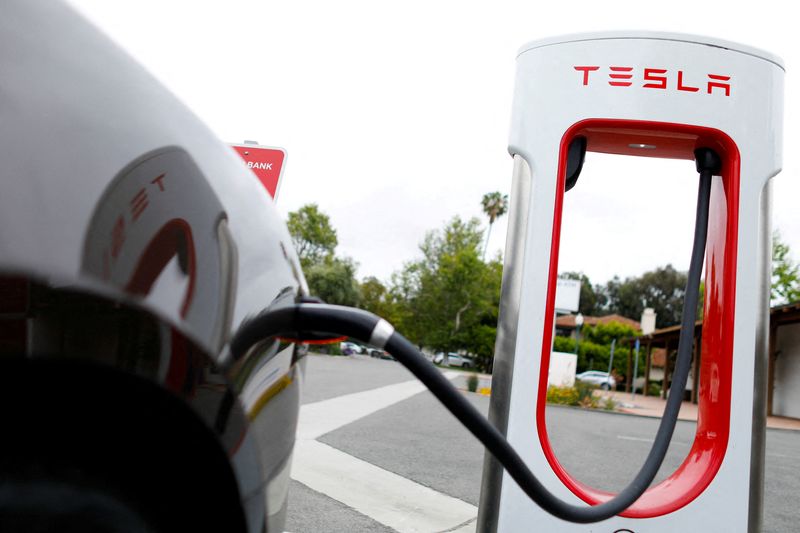On Wednesday, Barclays (LON:BARC) maintained its Equal-weight rating on Tesla shares (NASDAQ:TSLA) and increased the price target to $225 from the previous $180. The firm anticipates a second-quarter miss on the auto gross margin percentage, which is projected at 16.0%. The anticipated decline in margin is attributed to a combination of weaker pricing, and a non-repeat of Full Self-Driving (FSD) package revenues, partially offset by volume increases and raw material cost benefits.
The analyst noted that while Tesla's automotive segment may show weakness, its energy division had a record second quarter in deployments with improving margins, which could help mitigate the impact on overall performance. Despite the potential for near-term headwinds and stock pressure, the analyst acknowledged Tesla's dominant position in the global electric vehicle (EV) transition and the emergence of software-defined vehicles.
The report highlighted that the fundamentals of Tesla might come into sharper focus, which could temporarily affect the stock's performance. The recent rally in Tesla's stock price might be overlooking these near-term challenges. Nevertheless, Barclays believes that Tesla's trajectory on volume and its clear leadership in the EV market positions it strongly for long-term success. However, the firm's current stance remains cautious due to the potential short-term obstacles for the stock.
In other recent news, Tesla Inc. has been the subject of multiple analyst updates. Global Equities Research raised its price target for the electric vehicle manufacturer to $400, citing a surge in demand for the Model 3 and Model Y vehicles.
In terms of product updates, Tesla has introduced a new rear-wheel drive long-range variant to its Model 3 lineup, priced at $42,490, aiming to offer a more affordable option to consumers. However, the debut of its highly anticipated Robotaxi service has been postponed from August to October.
On the financial front, Morgan Stanley (NYSE:MS) revised the valuation of Tesla's energy storage business to $50 per share, while Oppenheimer projected that Tesla's energy storage sales could surpass $3 billion in the current quarter.
Meanwhile, Citi also increased Tesla's price target to $274, attributing the adjustment to upcoming electric vehicle and autonomous vehicle catalysts. However, UBS downgraded Tesla's stock rating from Neutral to Sell, despite raising the price target to $197, due to concerns over Tesla's valuation, particularly about its investments in artificial intelligence.
These are among the recent developments concerning Tesla.
InvestingPro Insights
Barclays' recent analysis of Tesla (NASDAQ:TSLA) sheds light on the company's expected performance and stock valuation. Complementing this, InvestingPro data indicates a market capitalization of $818.22 billion, reflecting Tesla's significant presence in the market. The company's P/E ratio, standing at 59.46, suggests a high valuation by the market, particularly when considering the last twelve months as of Q1 2024. Additionally, the PEG ratio of 3.96 points to expectations of future earnings growth, which investors should weigh against the current earnings multiple.
From the perspective of InvestingPro Tips, two noteworthy points are that Tesla holds more cash than debt on its balance sheet, and 12 analysts have revised their earnings upwards for the upcoming period. These insights could be pivotal for investors considering Tesla's financial health and future prospects. Moreover, Tesla's recent stock price volatility and the analysts' revisions signal a potential shift in market sentiment that may be critical for investment decisions.
For those seeking a deeper analysis, InvestingPro offers additional tips on Tesla, which can be found at https://www.investing.com/pro/TSLA. Use the coupon code PRONEWS24 to get up to 10% off a yearly Pro and a yearly or biyearly Pro+ subscription, unlocking further insights that could inform your investment strategy. There are 21 additional InvestingPro Tips available, providing a comprehensive overview of Tesla's financial and market performance.
This article was generated with the support of AI and reviewed by an editor. For more information see our T&C.
